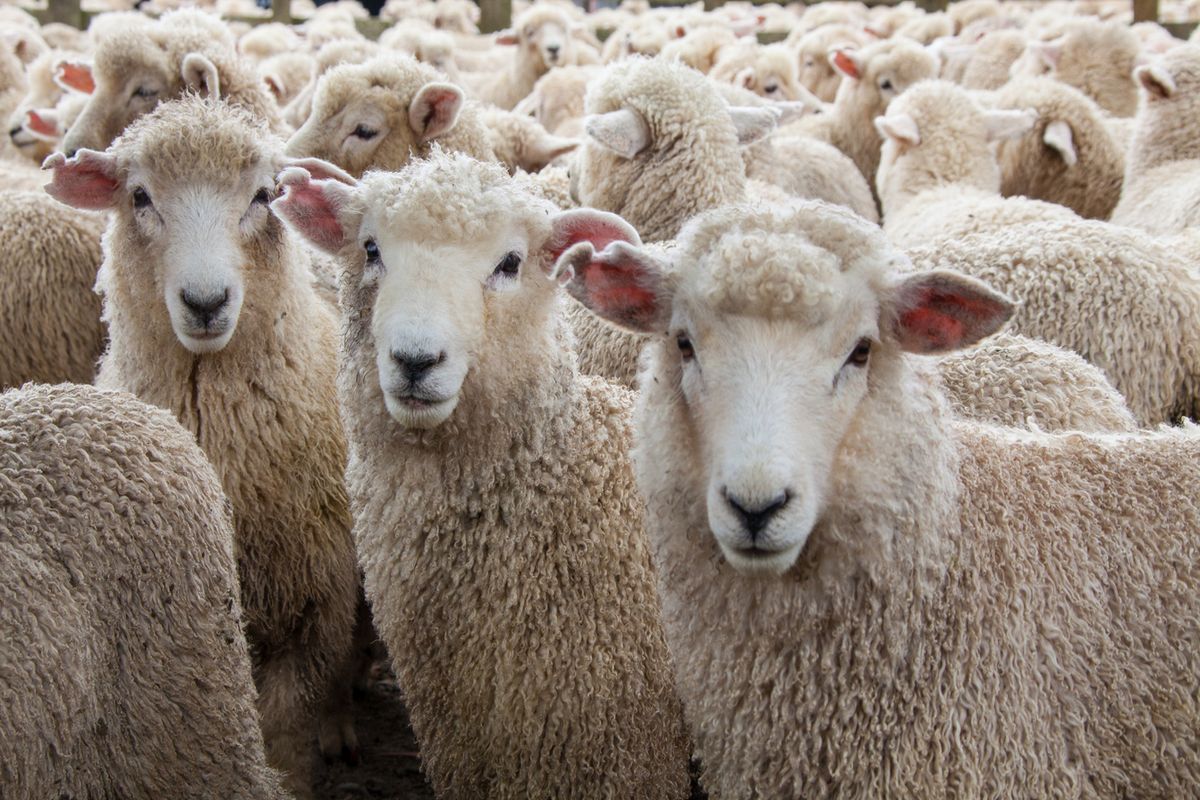Mongolia issues warning over blizzards
Mongolia's National Emergency Management Agency (NEMA) has issued a severe weather warning for several regions, predicting strong winds and blizzards to start on Monday night.
Mongolia has officially commenced the export of live sheep to Uzbekistan, marking a significant step in agricultural trade between the two nations, local media reported on Wednesday, citing the Ministry of Food, Agriculture and Light Industry.

Representational Image. (Photo: iStock)
Mongolia has officially commenced the export of live sheep to Uzbekistan, marking a significant step in agricultural trade between the two nations, local media reported on Wednesday, citing the Ministry of Food, Agriculture and Light Industry.
The initiative stems from an agreement made during Mongolian President Ukhnaa Khurelsukh’s state visit to Uzbekistan in June, the ministry said in a statement.
Advertisement
During the visit, the two countries’ leaders pledged to enhance cooperation in agricultural trade, specifically in the supply of wool, cashmere, leather, meat, and meat products from Mongolia to Uzbekistan and, through Uzbekistan, to other Central Asian markets.
Advertisement
As part of this agreement, Mongolia committed to exporting 100,000 live livestock to Uzbekistan, according to the ministry, Xinhua news agency reported.
“The agreement has now been officially implemented, and the first shipments have already begun. Since December 21, Mongolia has transported 1,440 live sheep to Uzbekistan on two flights,” the ministry said.
Promoting livestock husbandry is considered a key strategy for diversifying Mongolia’s mining-dependent economy.
Mongolia is one of the world’s last surviving nomadic countries, where livestock husbandry plays a crucial role in diversifying the landlocked nation’s mining-dependent economy. As of the end of 2023, the country had 64.7 million livestock, with goats comprising 38.1 per cent of the total and sheep making up 45.5 per cent, according to the National Statistics Office.
The livestock sector is a cornerstone of the Mongolian economy, but frequent outbreaks of livestock diseases pose significant challenges to the industry.
Earlier this month, an outbreak of a highly contagious disease affecting sheep and goats was reported in the western Mongolian province of Khovd.
“Several cases of Peste des Petits Ruminants (PPR), commonly known as sheep and goat plague, have been confirmed in Bulgan soum (an administrative subdivision) of the province,” the Bulgan soum governor’s office said in a statement.
In October, the southeastern Mongolian province of Dornogovi was placed under quarantine for an undetermined period due to an outbreak of CCPP, as reported by the country’s General Authority for Veterinary Services on Thursday.
Contagious Caprine Pleuropneumonia (CCPP), a severe disease which affects goats, is caused by the bacterium Mycoplasma Capricolum Subsp. Capripneumoniae.
Approximately 15,000 goats in Khatanbulag and Khuvsgul soums (administrative subdivisions) of the province were estimated to be infected. The authority stated that measures are being implemented to contain the disease, cull the infected goats, and disinfect the affected areas.
Notably, CCPP has not been reported in Mongolia since the 1950s, marking a 70-year absence, according to the authority’s statement.
This highly contagious disease spreads among animals in close contact through infected respiratory droplets. Symptoms in goats include anorexia, fever, and respiratory issues such as dyspnea, polypnea, coughing, and nasal discharge.
Advertisement